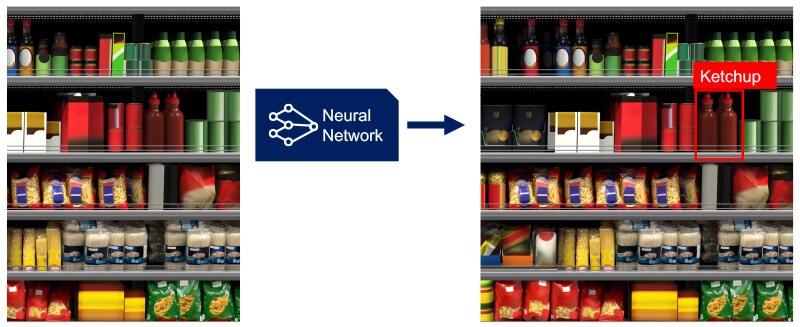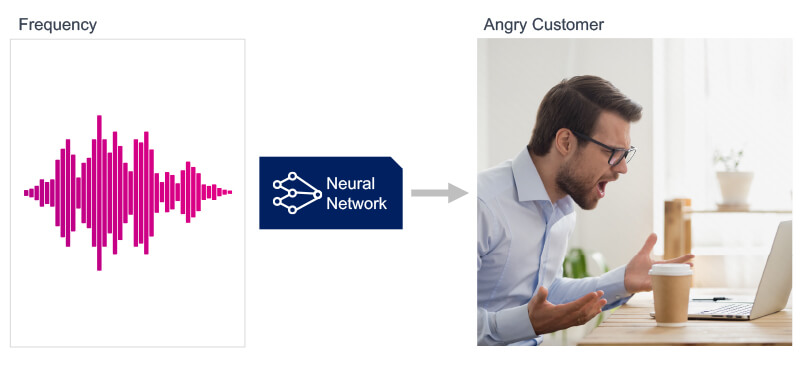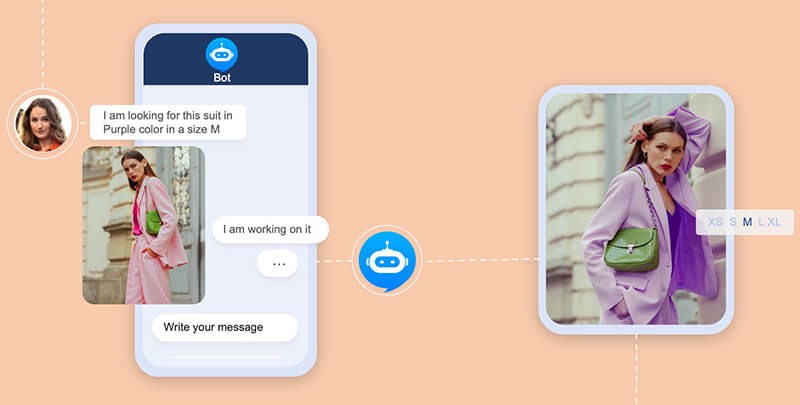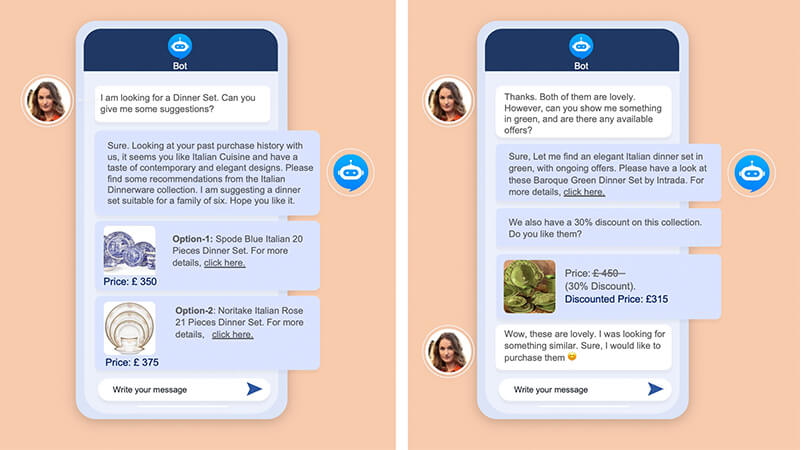Retailers are constantly seeking ways to enhance the shopping journey and create a lasting impression to encourage repeat visits, cultivate customer loyalty, and ultimately drive increased sales. Although there are several methods to attain these outcomes, the personalization of shopping experiences plays a crucial role in achieving customer satisfaction and loyalty.
According to a recent report on customer engagement by Twilio, investing in digital customer engagement resulted in a 90% boost in revenue. The report also shows that 86% of consumers acknowledge that personalized experiences have heightened their loyalty to specific brands.
In today’s swiftly evolving retail landscape, the infusion of cutting-edge technologies has ushered in a new era of customized shopping experiences. Amid these innovations, generative artificial intelligence (generative AI) emerges as a game-changing force, reshaping how retailers engage with customers on a profoundly individualized level. In this blog, we will explore how retailers can leverage generative AI to revolutionize their customer interactions, creating impactful experiences that foster enduring brand loyalty.
Use of Traditional Machine Learning Versus Generative AI in Retail
The adoption of AI in the retail sector is not a recent development. While AI has been present, its previous applications primarily involved basic tasks such as detection, translation, and data analysis to derive insights and formulate solutions.
Traditional Machine Learning Examples:
1. Object Detection: Neural Network detects the object in the image.

2. Language Translation: Neural Network translates a language into another language.

3. Audio Classification: Neural Network identifies the emotions of a customer during a conversation.

While traditional AI/ML challenges vary significantly in terms of input-output variables, they share a common thread. Across the board, traditional AI/ML algorithms process input and convert it into an output with supplementary information about the input samples.
For instance, consider object detection, where input images undergo neural network processing to reveal details about identified objects and their respective positions – this constitutes additional information. Similarly, in language translation, neural networks easily convert inputs from one language to another, once more offering supplementary information. Even in audio classification, input audio samples undergo network analysis, unveiling customer sentiments and providing further insights.
How is Generative AI different?
While advanced AI/ML algorithms like deep neural networks excel in tasks like classification and object detection by leveraging patterns in existing data, gen AI takes a leap into the realm of creative content generation.
It harnesses the power of learned patterns to produce new, diverse, and innovative content, making it an indispensable tool for retailers aiming to offer personalized and immersive shopping experiences.
Yet, a distinct class of neural networks diverges from this pattern. These networks not only furnish supplementary information about input samples but also endeavor to craft or generate new samples themselves. This is aptly known as generative modeling.
These networks transcend the boundaries of enhancing information and delve into the creation of images, audio, text, or other content types. By mastering intricate patterns and relationships within data, generative models possess the remarkable ability to create fresh, innovative outputs that capture the essence of the original data.

In this exploration of generative AI’s application in personalized retail, we delve into the unparalleled potential it holds for crafting unique interactions and transforming the consumer experience.
Personalize Retail Experiences with Generative AI
Generative AI is an evolving field poised to transform the retail sector. It has the capability to generate new data resembling its training data, enabling personalized AI-based product recommendations, compelling content creation, and enhanced customer service.
In the next section, we’ll delve into current applications of generative AI in the retail industry and consider its potential to enhance personalized and engaging experiences in the future.
Contextual Support
In the ever-evolving world of retail, generative AI chatbots have emerged as essential contributors to delivering personalized and efficient customer support. These virtual assistants work tirelessly, swiftly addressing common inquiries and resolving issues, thus elevating customer experiences and reducing wait times.
What truly distinguishes generative AI chatbots is their contextual understanding. Equipped with advanced algorithms, they dissect customer queries to offer responses that are not only relevant but also deeply customized.
These AI entities can tap into extensive text databases to provide answers, showcasing their adaptability and versatility. Moreover, their scalability is a game-changer, effortlessly managing numerous queries simultaneously and presenting a scalable solution to meet customer support demands.

Yet, the impact of generative AI reaches further than automated interactions. It enables frontline workers to effortlessly extract insights like inventory and shipping information through natural dialogue. This fusion of human and AI interaction creates an enhanced customer support environment where AI models delve into historical data, generating responses customized for individual customers.
Even for customer service representatives, generative AI is an invaluable partner, proposing scripts and targeted offers, and summarizing conversations. In essence, generative AI revolutionizes personalized customer support, delivering a powerful combination of data-driven insights and efficient, human-like engagement.
Engaging Product Descriptions
Let’s dive deeper into how generative AI can personalize product pages, simplifying the process for customers to discover and engage with products through customized descriptions.
Imagine a scenario where product descriptions resonate on a personal level. Generative AI achieves this by adjusting descriptions for segmented audiences, considering factors like demographics, location, browsing history, and customer categorization. Whether interacting with new visitors or loyal shoppers, these descriptions establish an immediate and meaningful connection.
Generative AI’s capabilities for retail go beyond text, encompassing visual augmentation. Retailers can leverage this technology to create unique landing pages, AI-generated product descriptions, and dynamically adjust visual representations.
Conversely, in online marketplaces with a variety of third-party sellers, generative AI can serve as a unifying element. By generating standardized keywords and product descriptions from images, this technology can ensure a consistent and appealing marketplace interface that seamlessly aligns diverse listings to ensure consistent product discovery and presentation.
Customized Product Recommendations
Through the utilization of generative AI, businesses can craft highly specific recommendations rooted in customer preferences, purchase history, and browsing behaviors.
Picture a scenario where a shopper is in search of new dinnerware. Instead of typing, she engages in a casual conversation with the retailer’s AI assistant, inquiring about the top suggestions for a family of six who typically enjoys Italian cuisine and needs tableware for daily use.

The AI promptly presents a curated selection, prominently featuring a set similar to the dinnerware that the customer previously purchased and suitable for her culinary tastes. As their conversation progresses, with inquiries about available designs and ongoing promotions, the AI seamlessly supplies responses, ultimately guiding her toward a purchase decision that aligns perfectly with her requirements and preferences.
Generative AI can also elevate the website search experience by enhancing the search bar’s intelligence to not only understand text but also interpret uploaded images, recognize spoken requests, or even process brief video clips. Imagine your customer browsing on your website in search of a new pair of shoes. Instead of merely typing “red running shoes,” they could snap a picture of a shoe they admire and ask the website to find similar options. Alternatively, they could verbally request, “Show me running shoes for my morning jog,” and the AI assistant would instantly grasp the intent.
In both instances, generative AI adapts to various ways customers prefer to explore products, significantly elevating the shopping experience and fostering deeper connections between customers and brands.
Personalized Marketing Campaigns
Generative AI is a game-changer in the world of personalized and targeted marketing, fundamentally transforming how businesses engage with their audiences. This technology boasts impressive capabilities, ranging from creating personalized marketing campaigns to automating the generation of creative content.
Imagine a situation where an apparel retailer wants to connect with their wide-ranging customer demographic. Generative AI examines consumer data to craft precise marketing initiatives that appeal to various segments. For instance, it might generate a lively email promotion showcasing men’s chinos for the office, all while creating a different video campaign for TikTok spotlighting men’s chinos for university students. Basically, the same pair of pants is targeted to two different demographics in a customized strategy that will cultivate deeper customer relationships and enhance engagement.
Furthermore, generative AI enables marketers to execute personalized marketing at an enormous scale. Picture an email campaign aimed at thousands of recipients. Thanks to the capabilities of Generative AI, each email can be uniquely tailored to cater to individual preferences. For instance, a fitness enthusiast could receive an email highlighting performance-boosting activewear, while a fashion-forward customer might be enticed by the latest athleisure wear.
In addition to customized campaigns, generative AI enhances the efficiency of marketing professionals. It can generate initial drafts of blog posts and produce visually appealing imagery. This frees up marketers from time-consuming chores, enabling them to concentrate on the strategic aspects of their campaigns.
In essence, generative AI’s capabilities span from the strategic planning of campaigns to the hands-on creation of creative content, which fosters personalized and engaging interactions between businesses and their customers.
Other Notable Use Cases of Generative AI in Retail
- Analyze millions of reviews and provide a summary:
- Identify the top three reasons people like a product and the top three reasons they dislike it.
- This technology can consolidate extensive comments, streamlining the customer experience and boosting satisfaction.
- Enhance Social Media interactions:
- Generative AI can assist retailers in managing social media interactions by proposing diverse responses to customer comments and inquiries, optimizing engagement for efficiency and personalization.
- For instance, when a customer inquires about product availability, Gen-AI can recommend various responses, such as sharing real-time stock status or suggesting alternative options.
- Similarly, if a customer praises a recently purchased gadget in a comment on a retailer’s post, AI can craft a response that acknowledges their satisfaction and proposes related accessories or complementary products, elevating the conversation and subtly encouraging further engagement.
Conclusion
Generative AI is revolutionizing the retail industry by offering highly personalized and engaging customer experiences. Generative AI, unlike traditional AI, goes beyond analyzing data to create new, innovative content. It offers personalized retail experiences through chatbots that provide contextual support, product descriptions tailored to individual preferences, and customized product recommendations.
Generative AI also improves website search capabilities by understanding images, spoken requests, and videos. Additionally, it enables personalized marketing campaigns and enhances marketing efficiency. Other notable use cases include analyzing reviews and enhancing social media interactions. In short, Generative AI is poised to reshape the entire retail industry by delivering exceptional customer experiences and fostering brand loyalty.



















